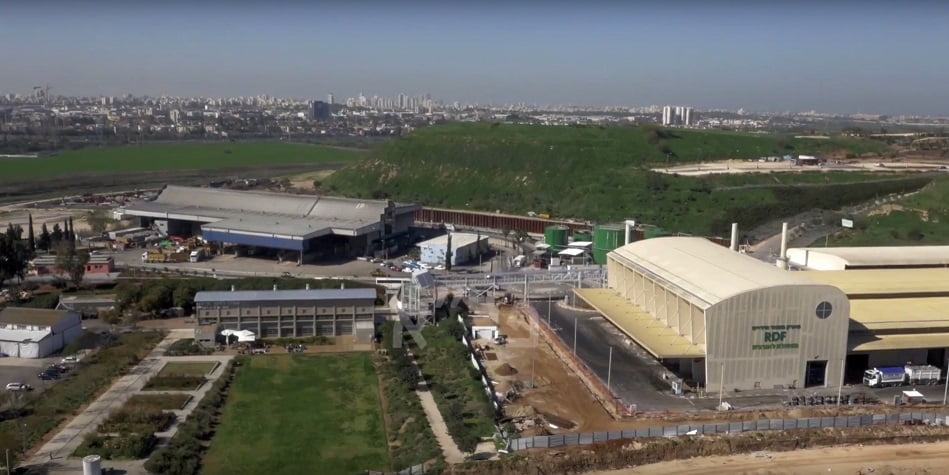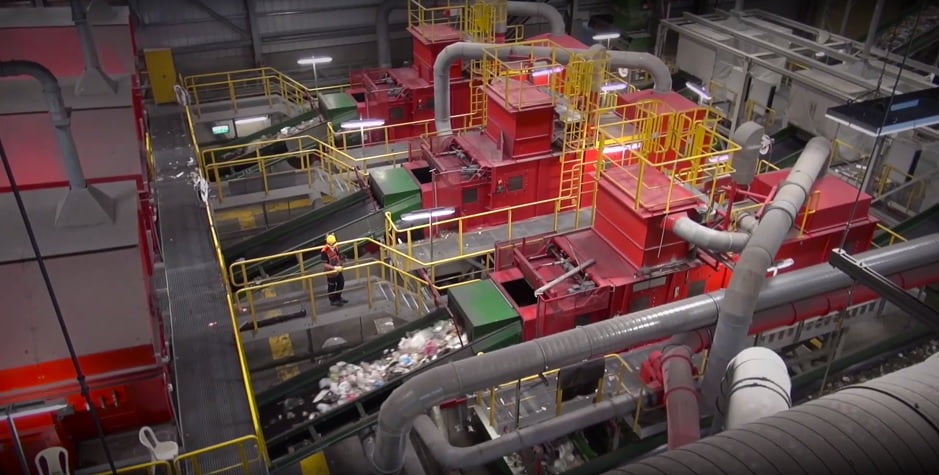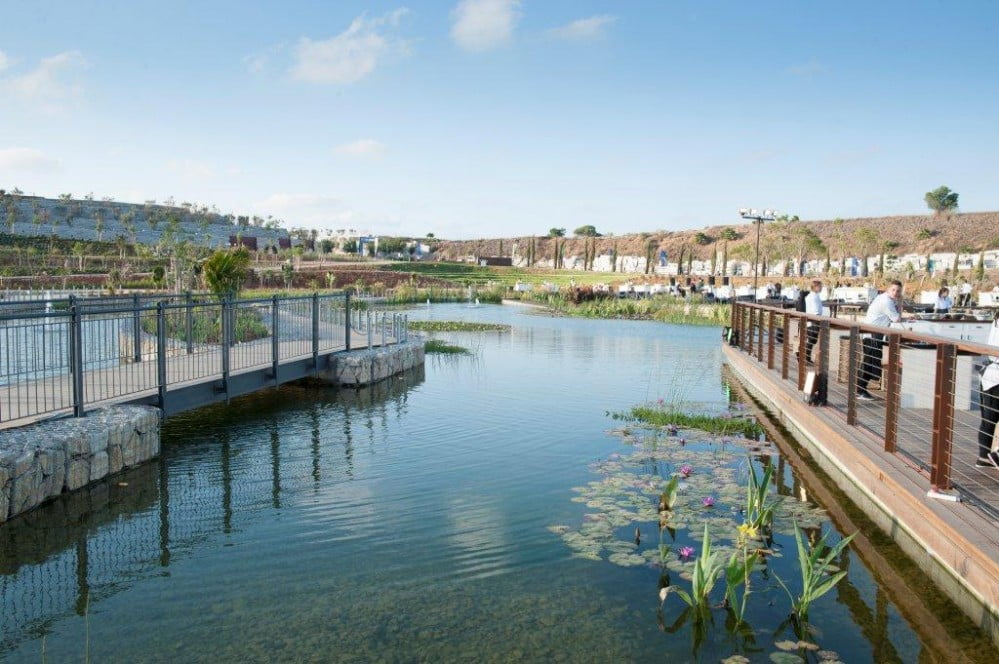A consortium of Israeli companies has opened a new recycling plant that will turn half a million tons of garbage a year into fuel.
The $110 million plant – Israel’s biggest, and one of the largest of its kind in the world – will treat 1,500 tons of household waste every day, about 50 percent of Greater Tel Aviv’s garbage.
The trash will be converted into fuel, which will be used to power a nearby cement factory, using a technology called “Refuse-Derived Fuel” (RDF).

The plant will provide 20 percent of the energy needed to power Israel’s Nesher cement plant. Courtesy
“The key to a sustainable future”
At the cutting-edge plant outside of Tel Aviv, RDF is produced from solid waste, and can replace a portion of fossil fuels used by the local cement industry. The waste is separated using different techniques, for example: giant magnets pull metals, and holes in different sizes separate the garbage by size.
SEE ALSO: Tel Aviv Named World’s 7th Greenest City
The end result is a homogeneous material that provides 20 percent of the energy needed to power Israel’s Nesher cement plant – about 500 tons of fuel per day. The companies behind this innovative environmental project are Nesher Israel Cement Enterprises, Veridis Environment and the Hiriya Recycling Park.
According to Doron Saphir, deputy mayor of Tel Aviv, “conserving nature’s resources by turning garbage into fuel is the key to a sustainable future.”
Sign up for our free weekly newsletter
SubscribeOne of most innovative environmental projects in the Middle East
The plant is part of Israel’s largest eco-park (Ariel Sharon Park), which was built at the location of the massive trash site Hiriya. What used to be Israel’s largest landfill dump underwent a massive makeover three years ago, which turned a giant mountain of garbage into a 2,000-acre ecological park three times the size of New York City’s Central Park. The Ariel Sharon Park is considered one of the largest, most innovative environmental projects the Middle East.
SEE ALSO: Genetically Modified Bacteria Could Eat Away The World’s Massive Plastic Problem
The park includes recycling stations, walking and cycling trails, ponds and extreme sports activities, and will soon be home to a 50,000-seat amphitheater, one of the largest concert venues in Israel.
In addition to the RDF plant, the park is home to a recycling center and transfer station. Each day, approximately 800 garbage trucks deposit 3,000 tons of household waste and garden trimmings into the recycling station; and 400 more trucks bring approximately 1,500 tons of construction waste from 18 local municipalities in the area.
But while Hiriya Mountain, previously known as “stinky hill,” has come a long way, it’s still far from being completed. The park will continue to expand through 2020, with more recreational and tourist attractions to come.
Photos and video: Courtesy
Related posts

Editors’ & Readers’ Choice: 10 Favorite NoCamels Articles

Forward Facing: What Does The Future Hold For Israeli High-Tech?

Impact Innovation: Israeli Startups That Could Shape Our Future





Facebook comments